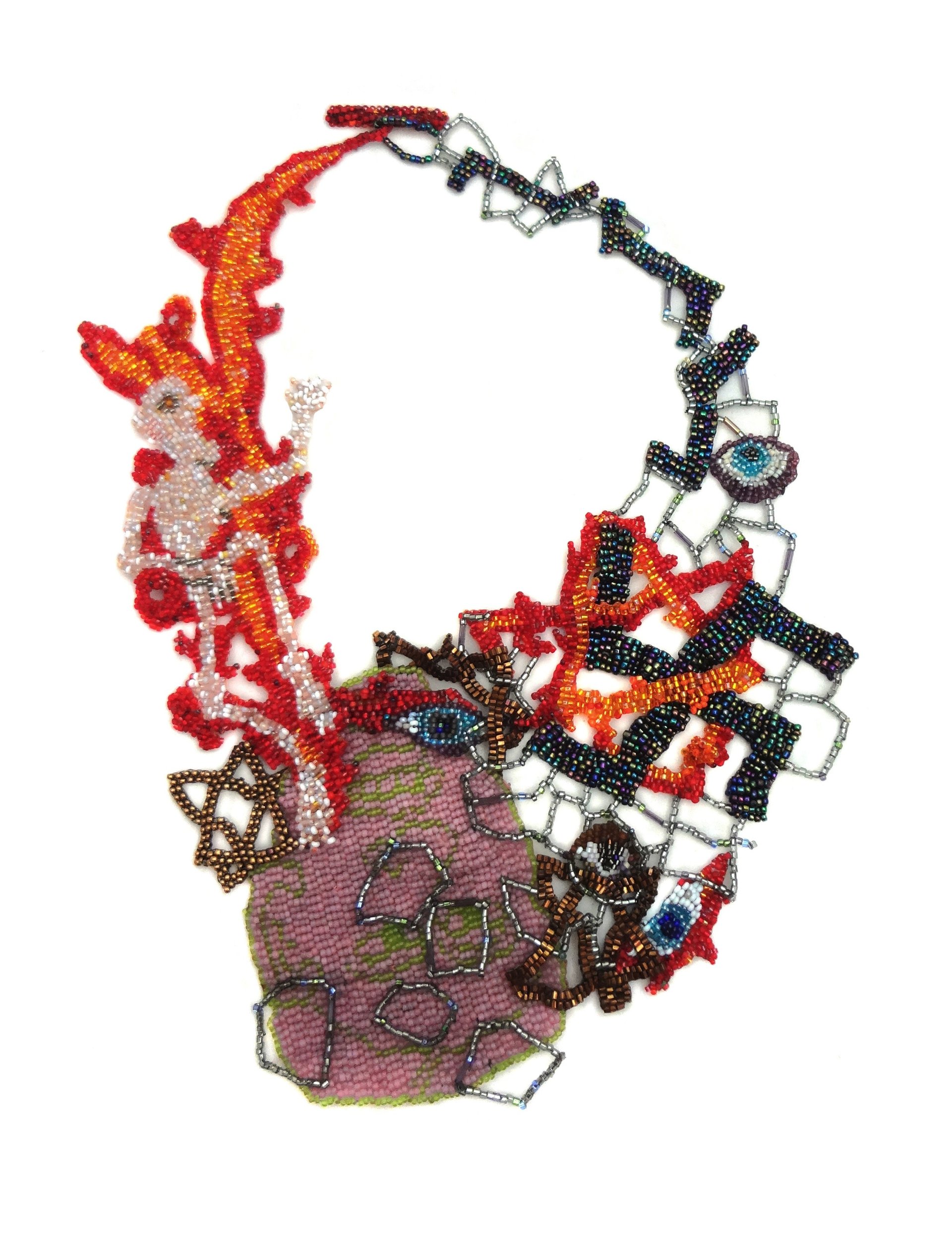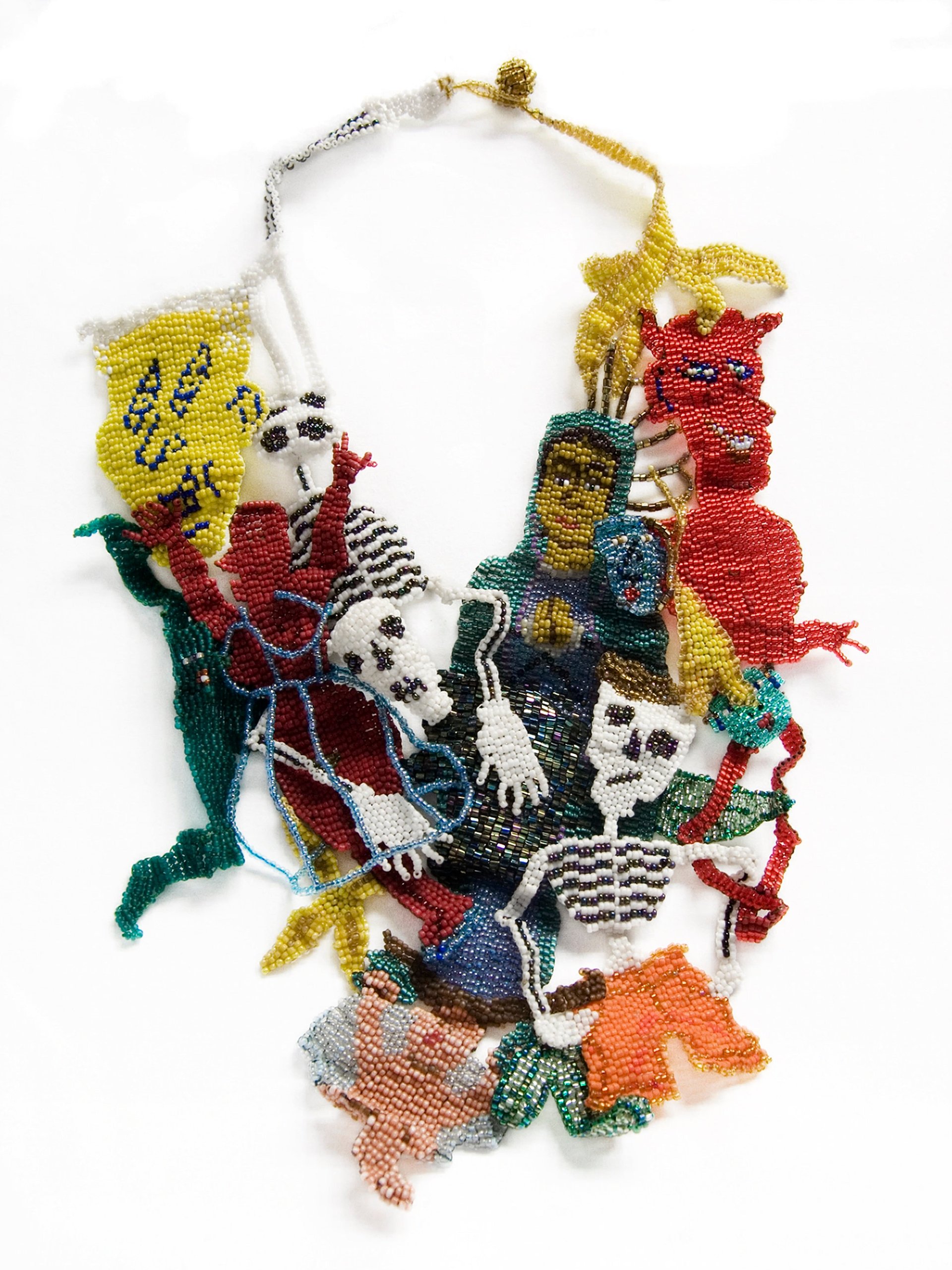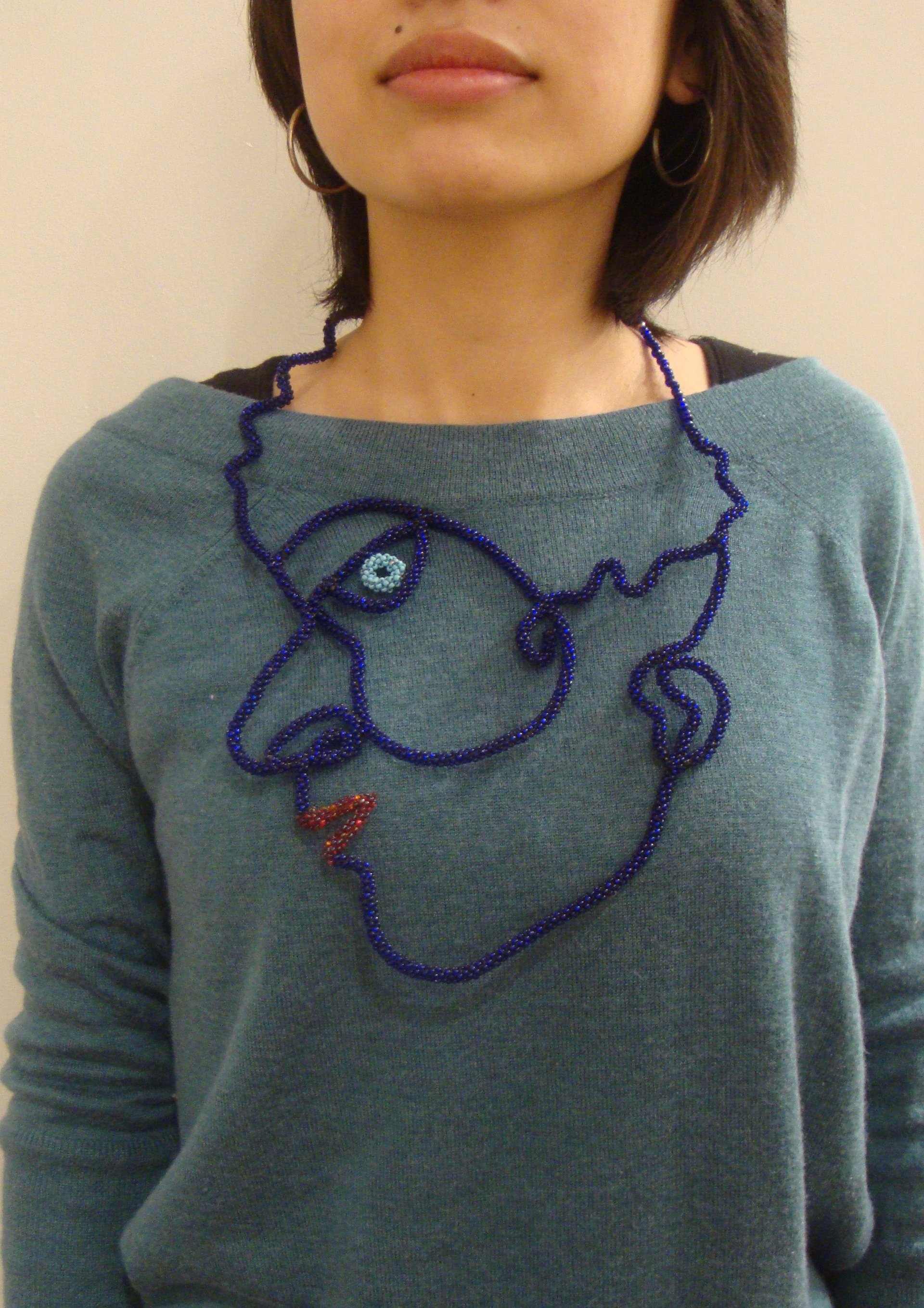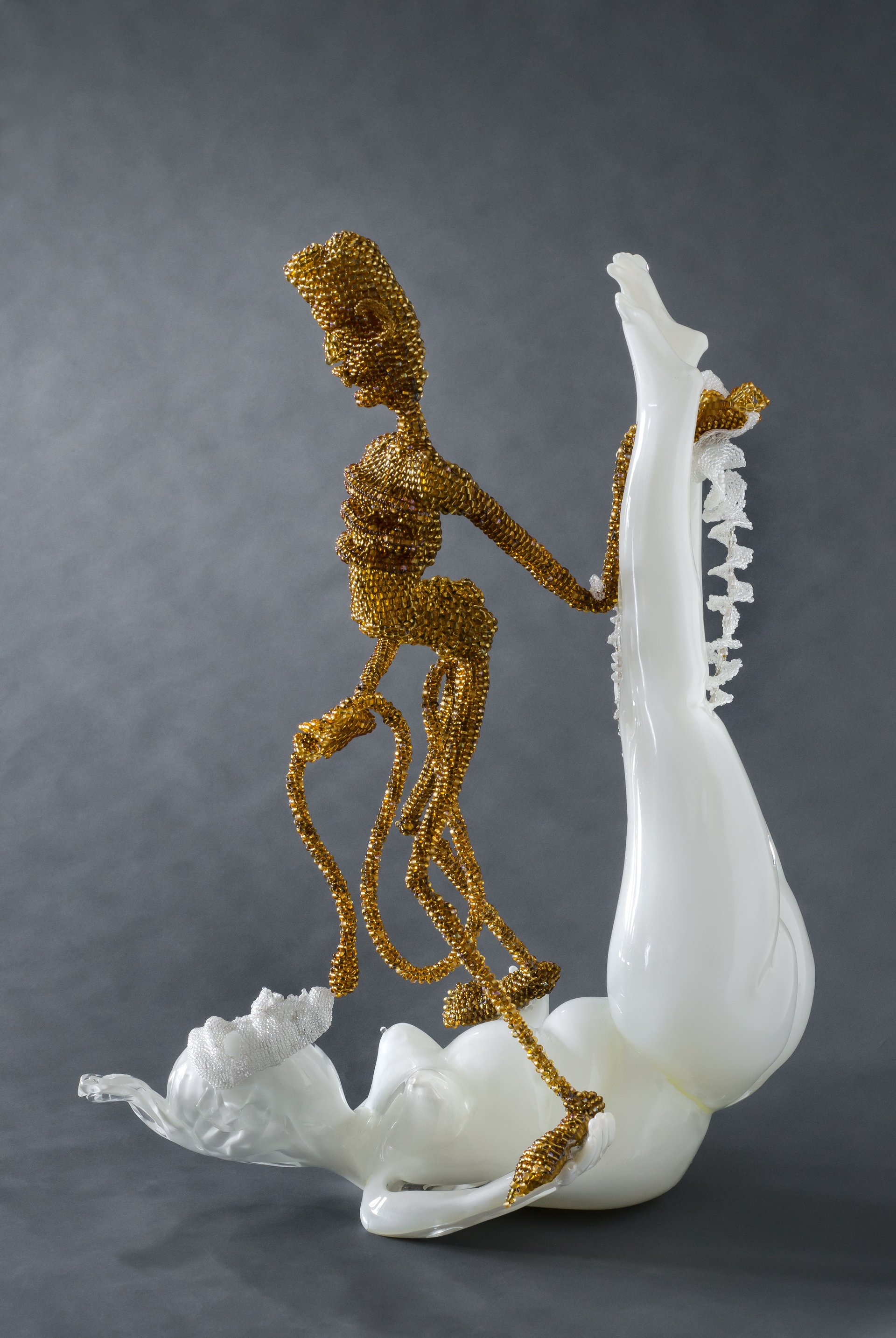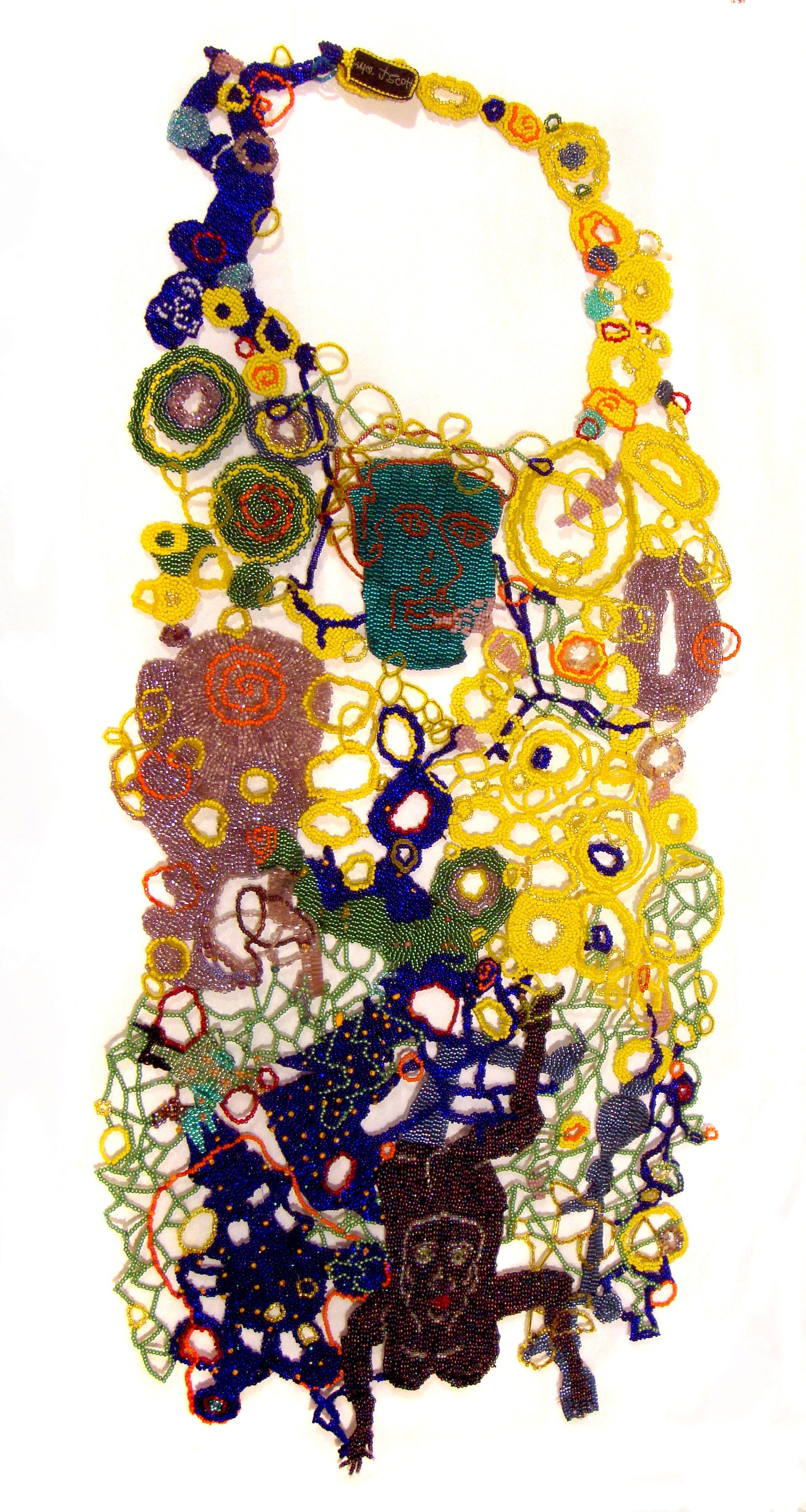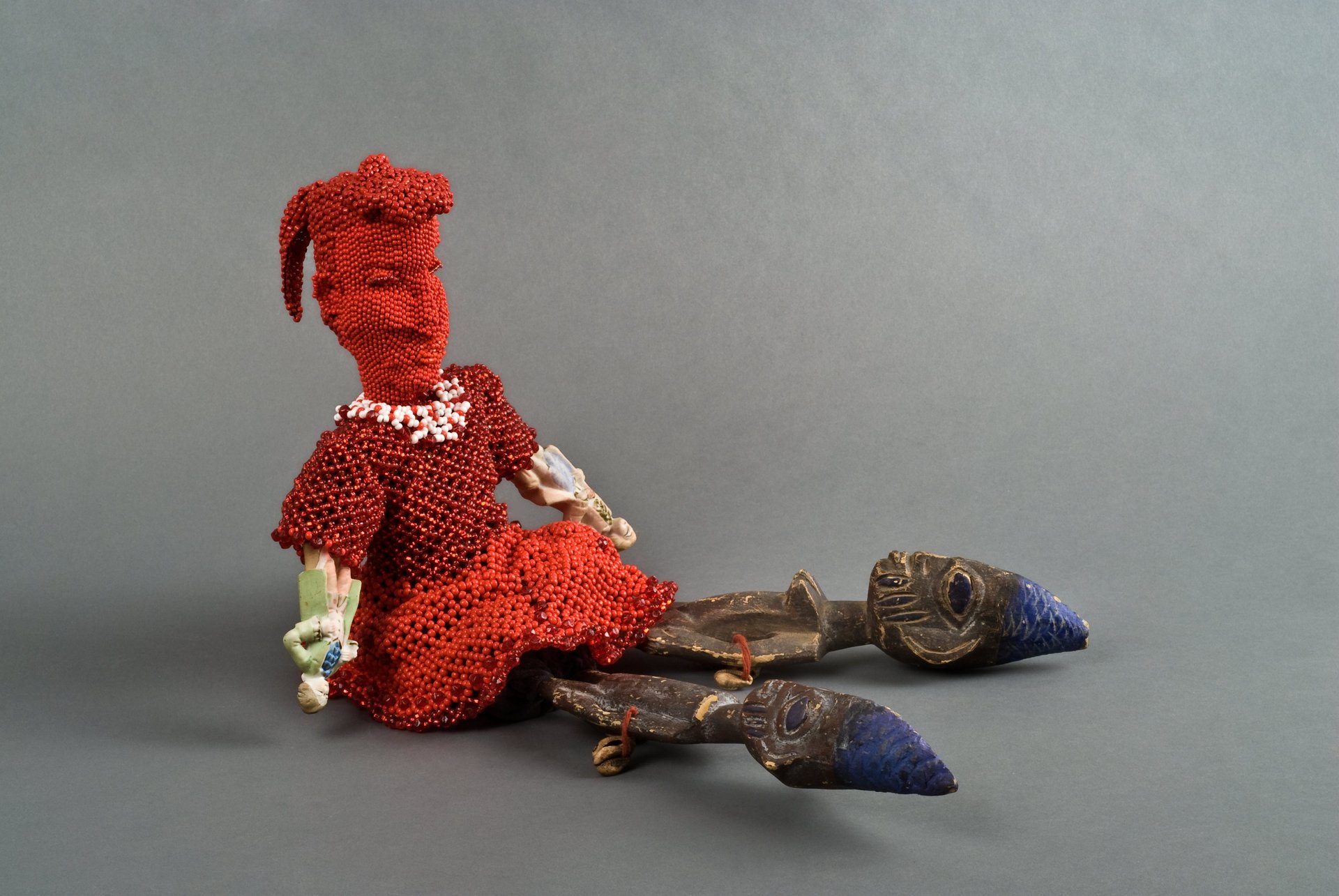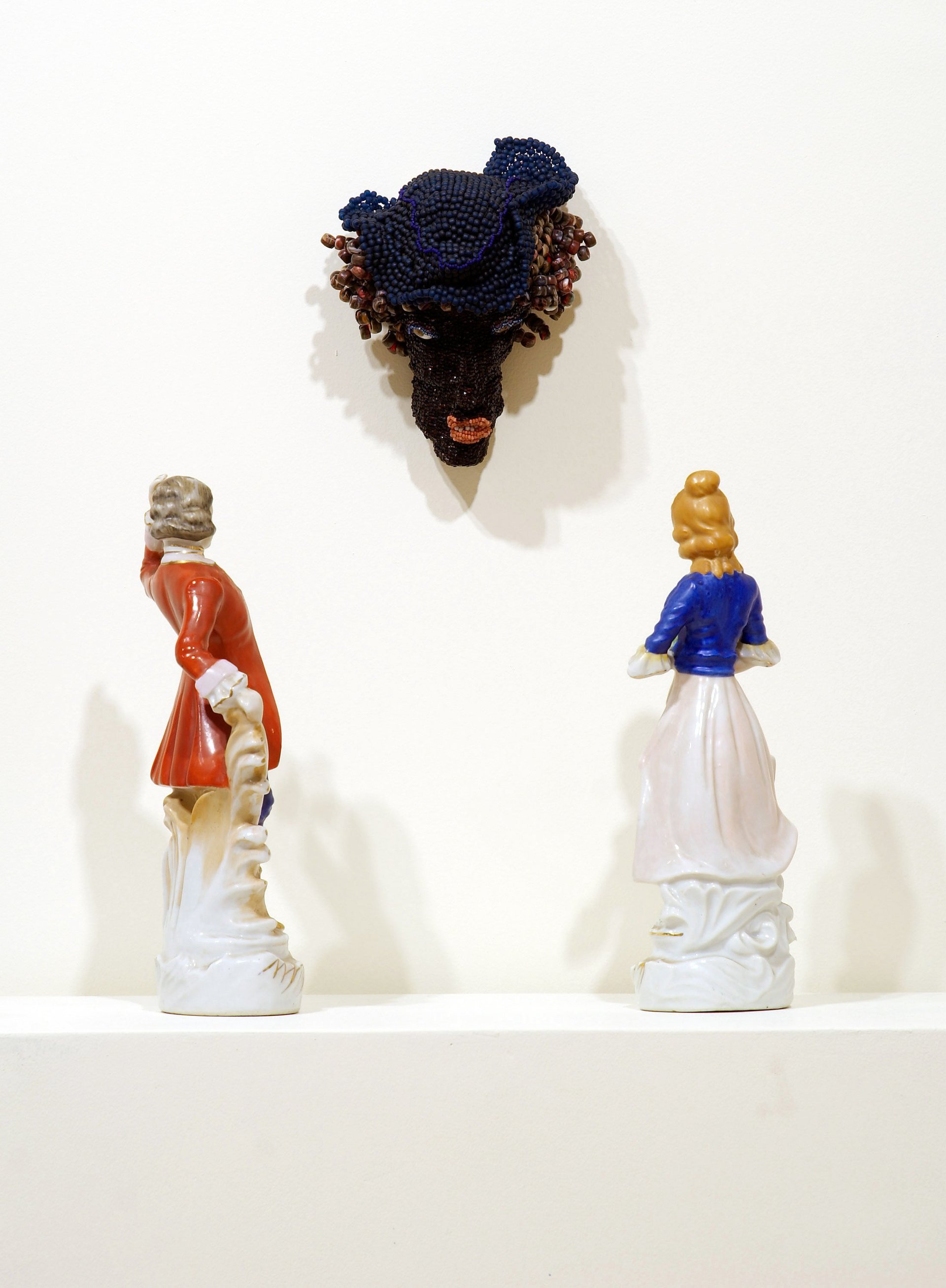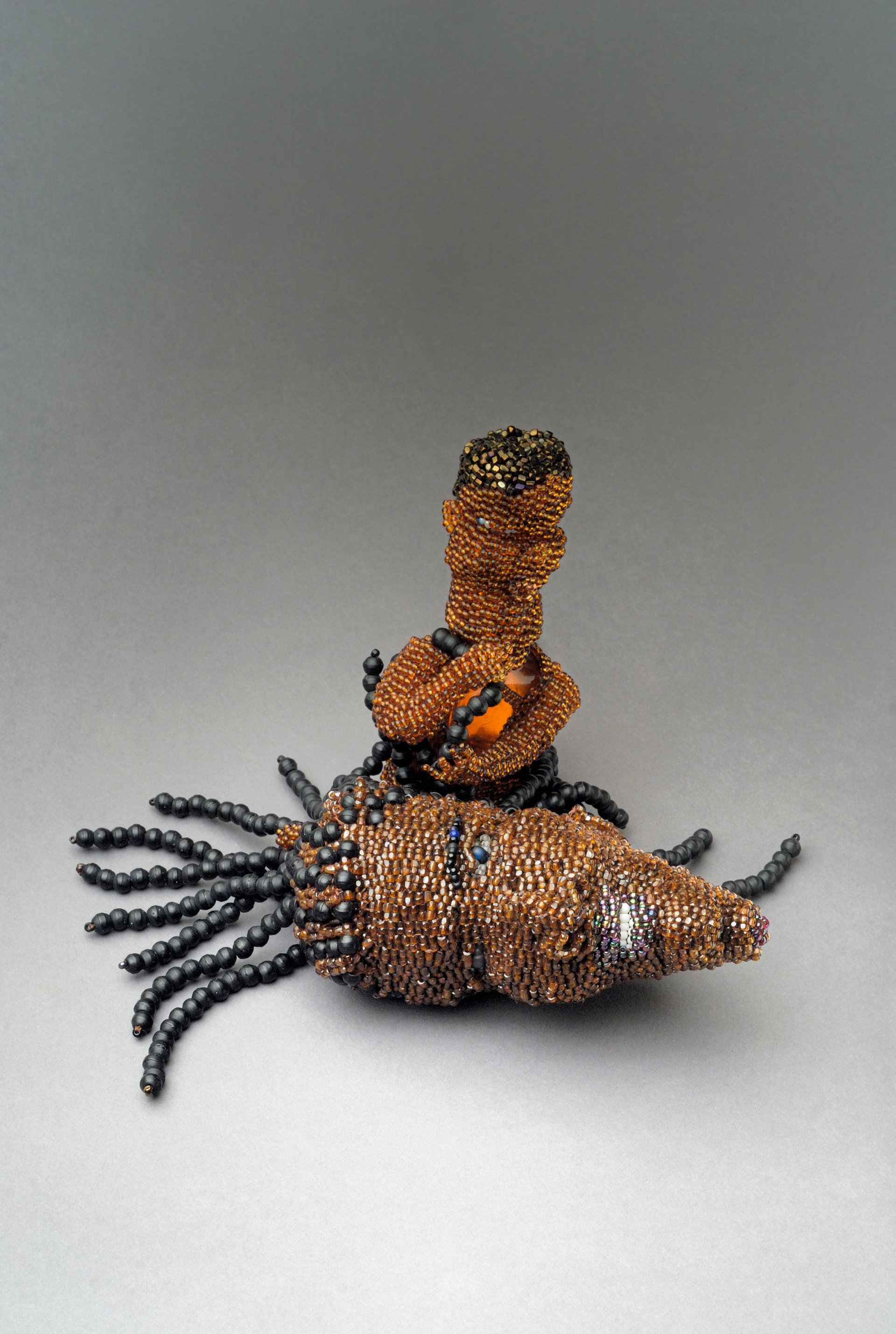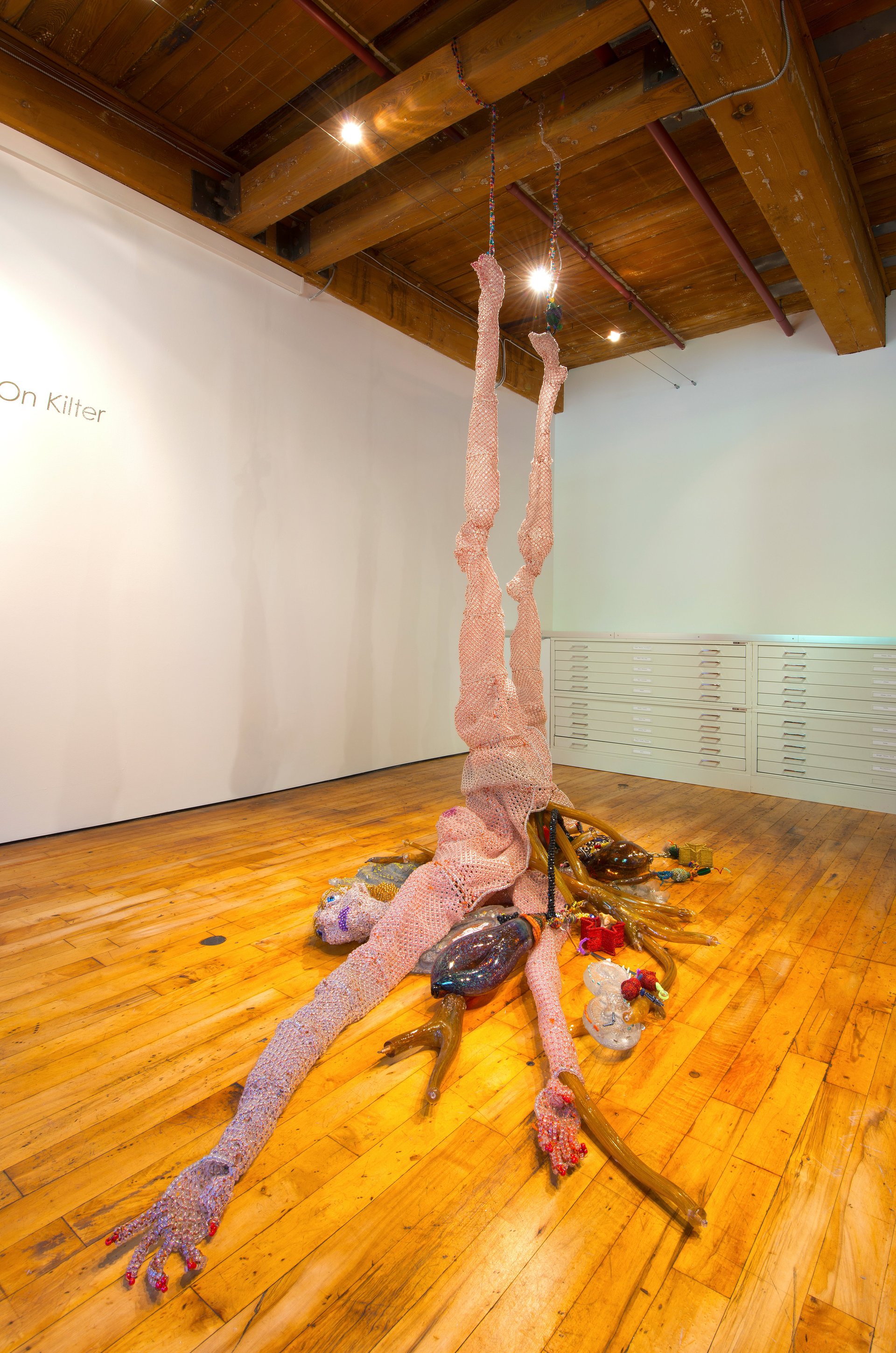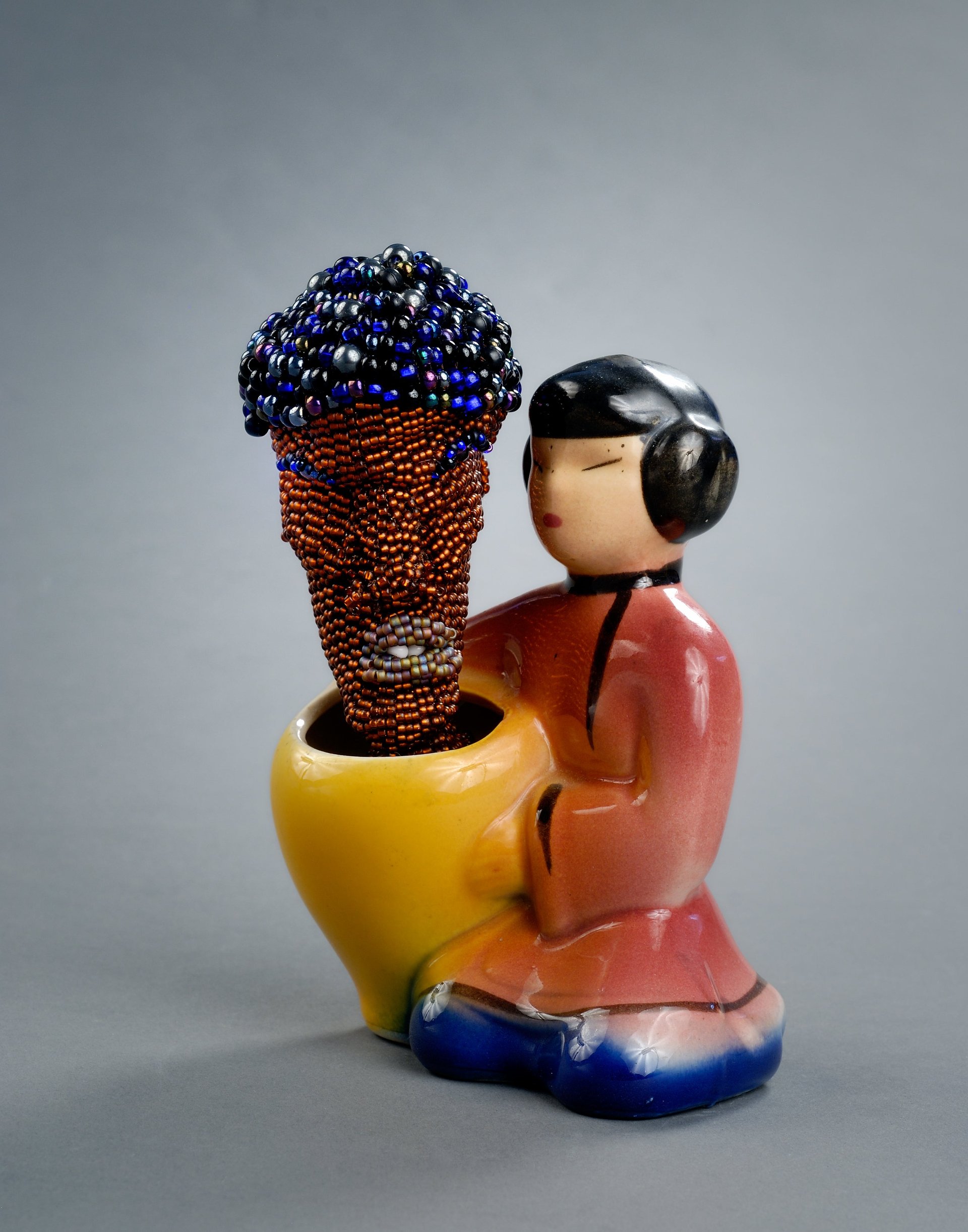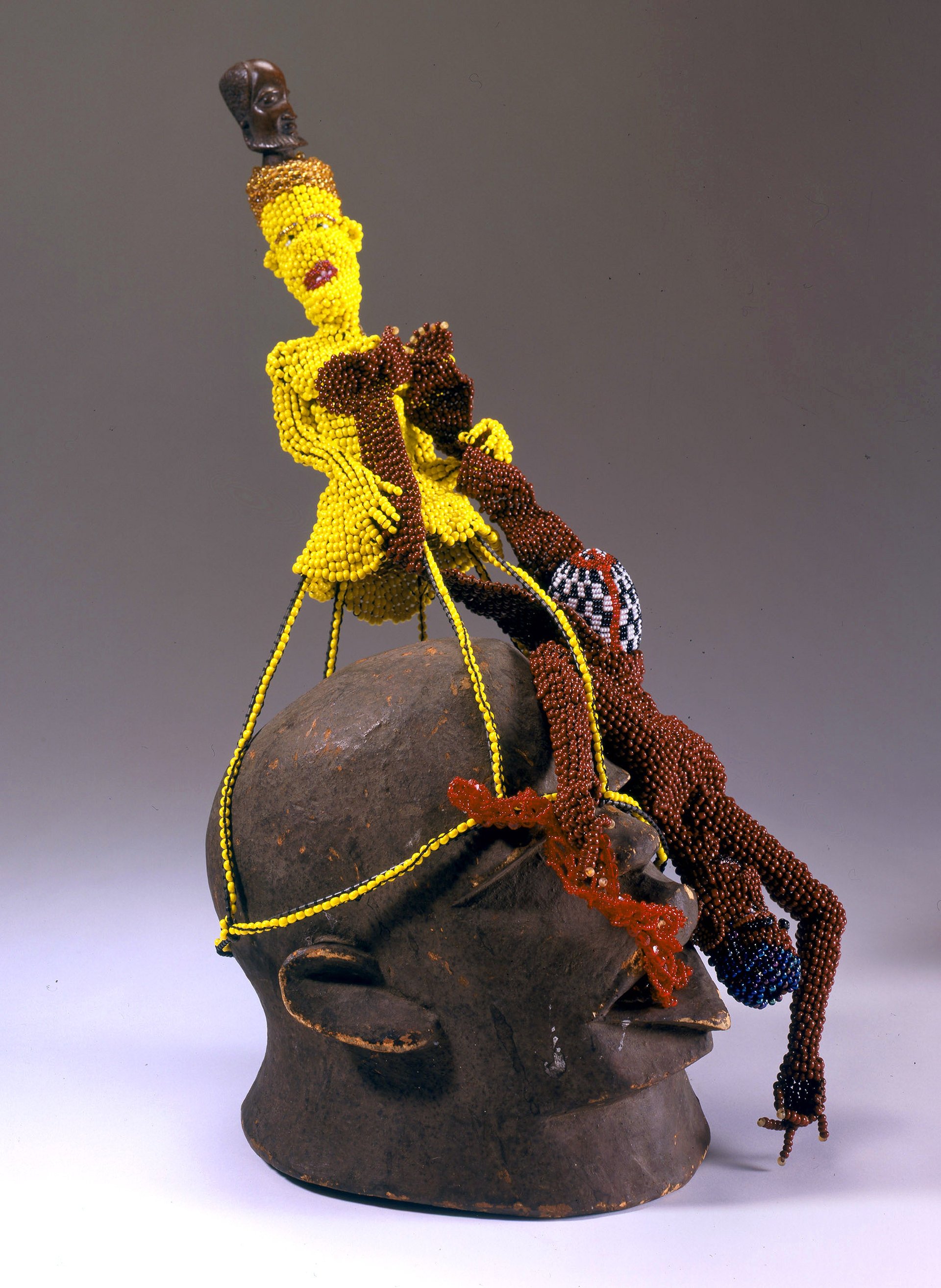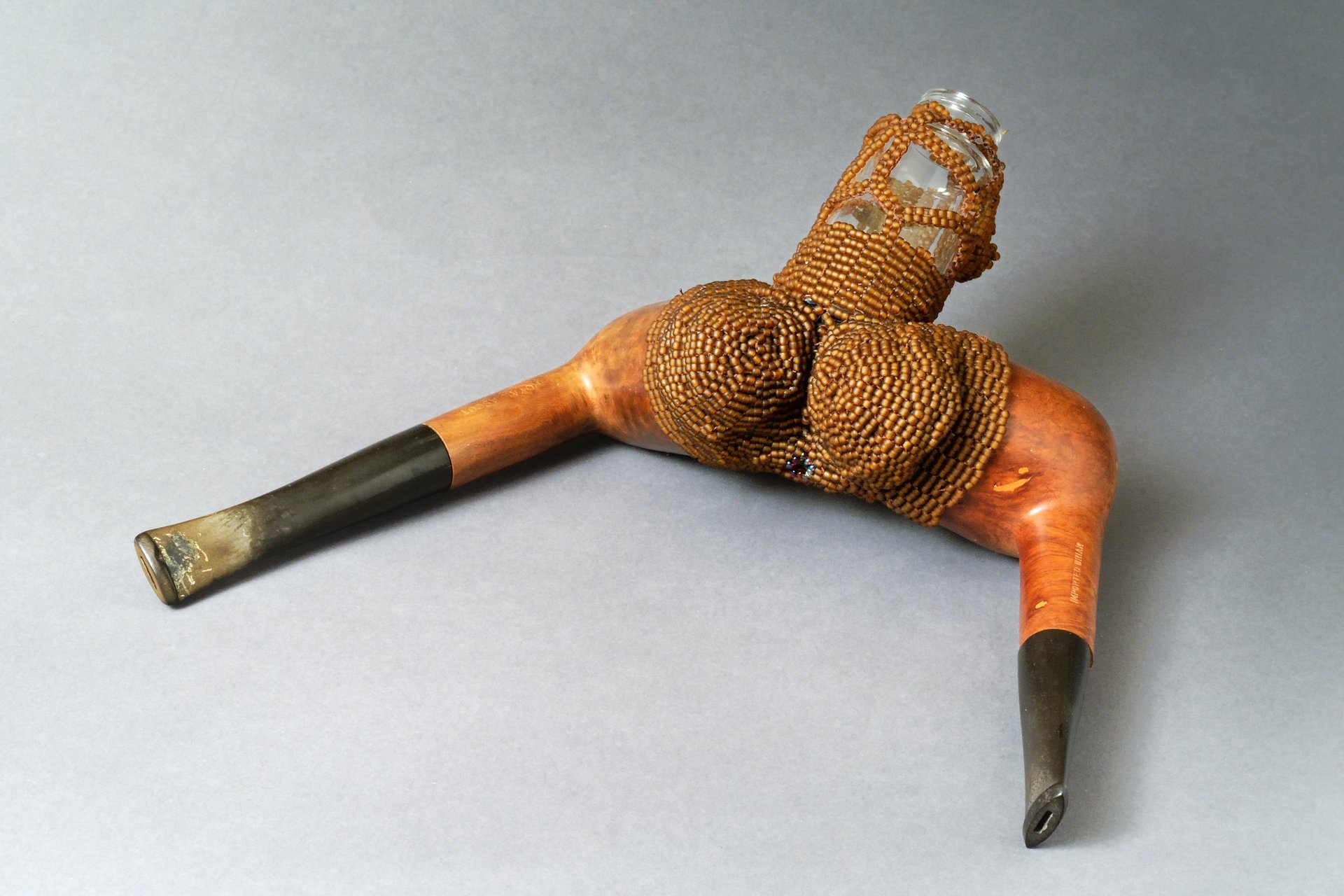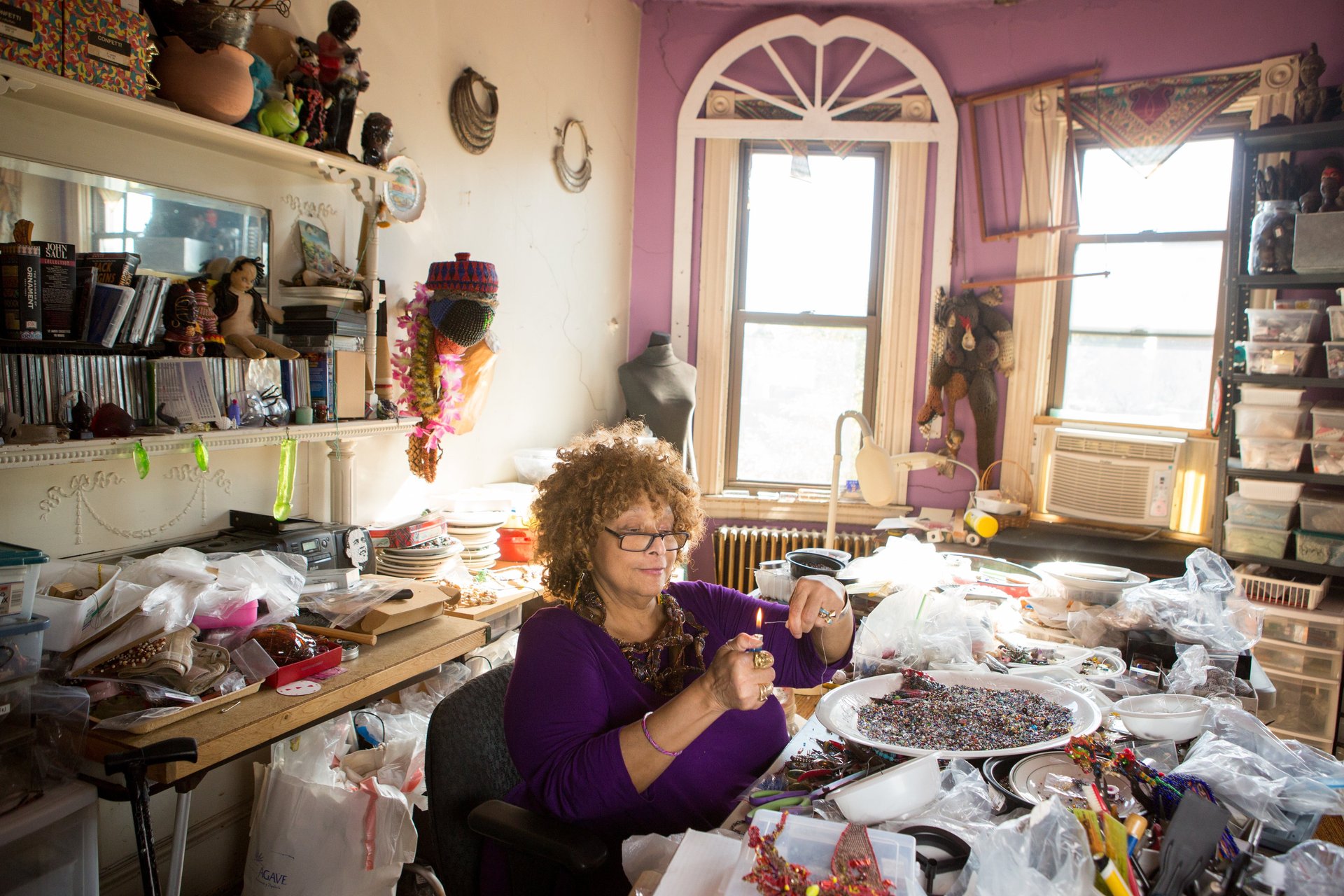Photos: The jewelry and sculptures about racism and sexism that earned Joyce J. Scott a MacArthur “genius” award
A beaded necklace is an unlikely place to find a narrative about race, history, and slavery, says Lowery Sims, curator emerita at the Museum of Arts and Design (MAD) in New York. But that surprise factor is part of the allure of Joyce J. Scott’s art. “Technically it’s breathtaking, it’s intimate, it’s intricate—but it’s also a very powerful statement about the world and some of the issues we face as human beings,” Sims says.
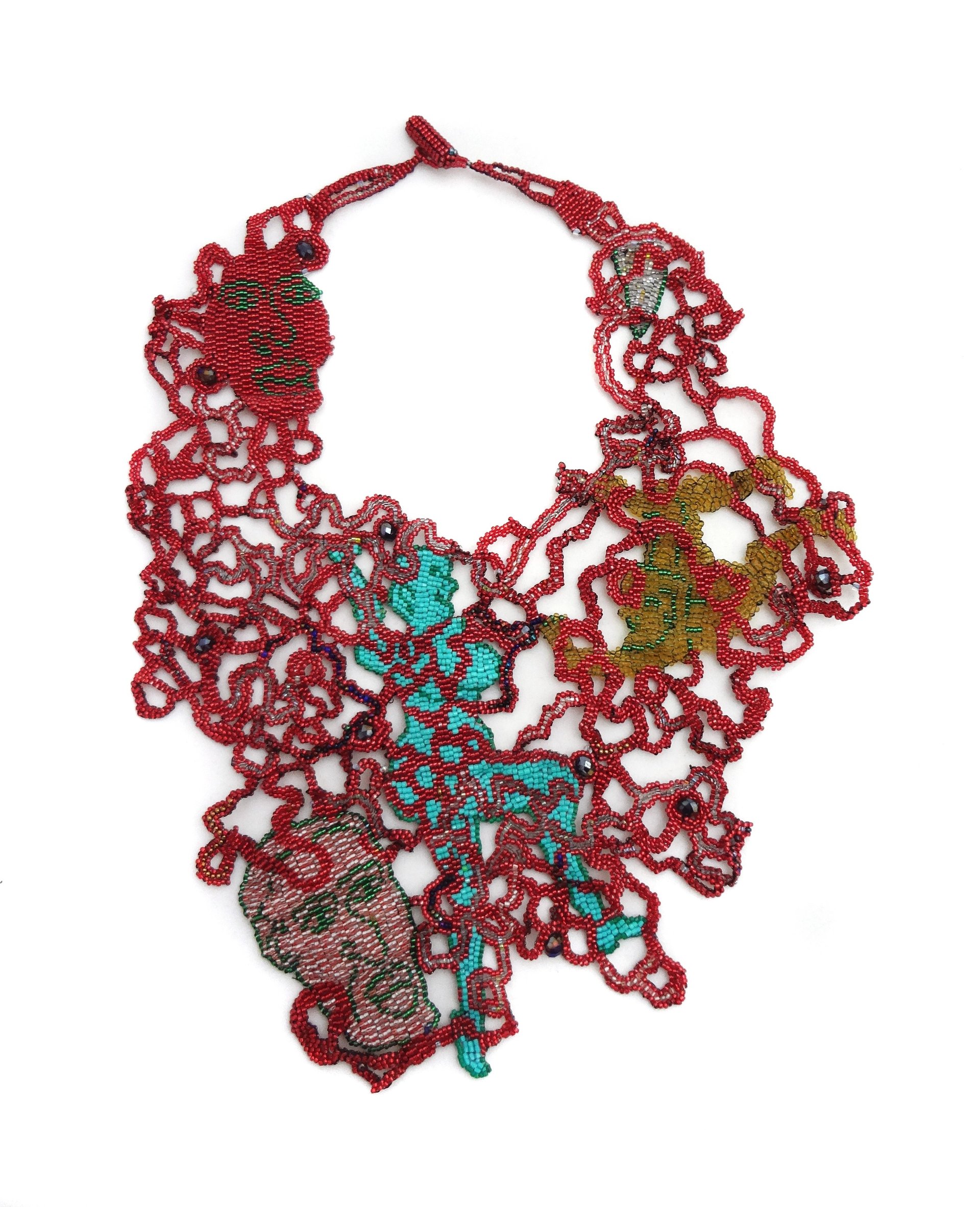

A beaded necklace is an unlikely place to find a narrative about race, history, and slavery, says Lowery Sims, curator emerita at the Museum of Arts and Design (MAD) in New York. But that surprise factor is part of the allure of Joyce J. Scott’s art. “Technically it’s breathtaking, it’s intimate, it’s intricate—but it’s also a very powerful statement about the world and some of the issues we face as human beings,” Sims says.
Scott, 67, is an artist based in Baltimore, Maryland, best known for her jewelry and sculptures made from glass beadwork. Using a medium that has been pigeonholed as a handicraft for years, she makes grand artistic statements that usually address dark topics, including rape, violence, lynching, murders, and racism. Scott once remarked: “It’s important to me to use art in a manner that incites people to look and then carry something home, even if it’s subliminal–that might make a change in them.”
This week, Scott was selected to win one of 23 John D. and Catherine T. MacArthur Foundation “Genius” grants, which give each recipient $625,000, distributed over five years. The foundation praised Scott’s work, saying she is “repositioning craft, and in particular beadwork, as a potent platform for commentary on social and political injustices.”
The artist, who completed an undergraduate degree at the Maryland Institute College of Art, before getting an M.F.A. from the Instituto Allende in San Miguel de Allende, Mexico, was also trained by her mother, Elizabeth T. Scott, a noted textile artist.
“She can coax someone into the conversation though the mastery of her medium,” Amy Eva Raehse, executive director of the Goya Contemporary gallery in Baltimore, says of Scott, pointing to the artist’s “Day After Rape” series as an example. “The works tend to be small, so you have to get up close,” she says. “Viewers tend to be seduced by the beauty of the materials. They see these red beads that are sparkling from across the room. Then, when they’re in close proximity to that object, they recognize, ‘Oh, this is about rape. This woman is hog-tied and she’s bleeding.’ In that moment, the viewer is charged with having to actually deal with the subject matter.”
Some of Scott’s work is satirical. One piece, Ancestor Progeny, is about two parents who have been passing as white and are now confronting their black child.
After winning the award, Scott told the Baltimore Sun that she would keep living in the “challenged” neighborhood where she grew up, despite her new money. She also plans to continue working to be “the best.”
“I don’t want to be at ease in my life, because the world is not at ease,” she said.
Scroll down for images of her astounding, timely neckpieces and sculptures.
